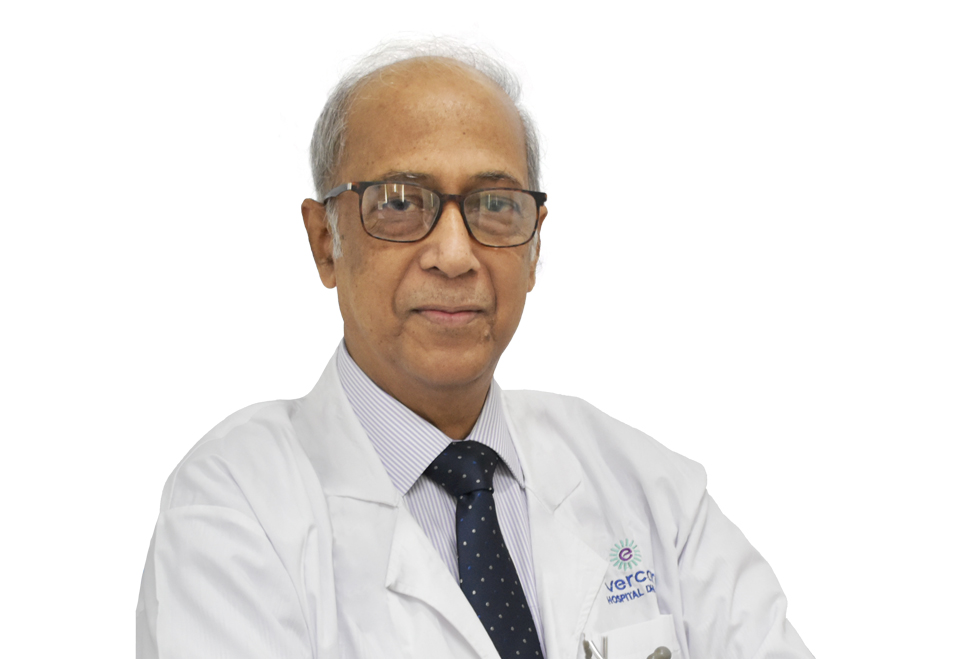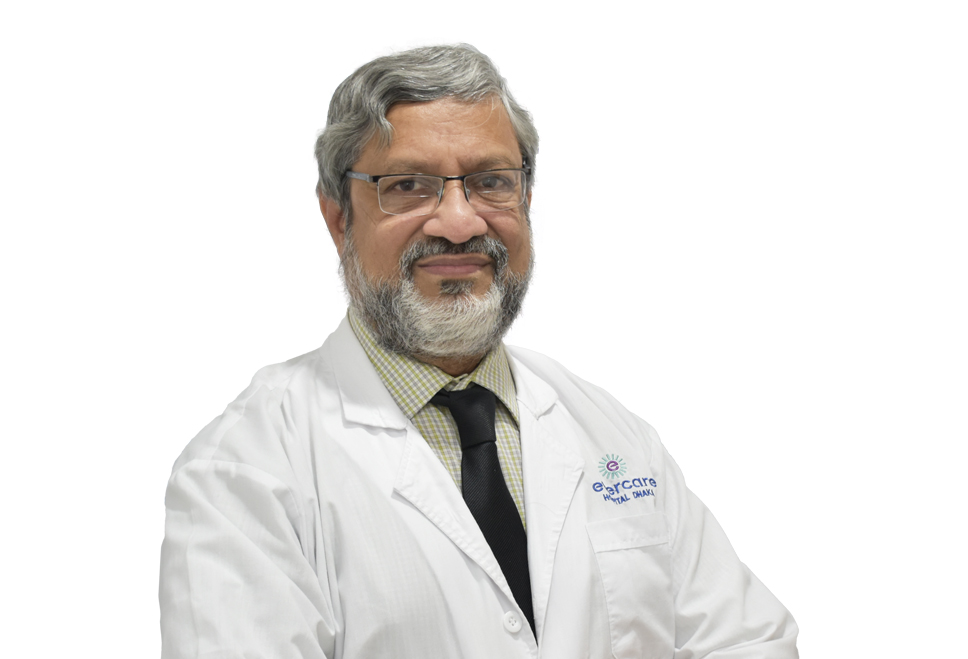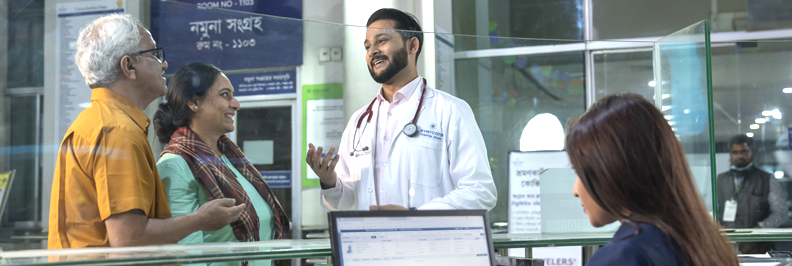Nuclear Medicine
WHAT IS NUCLEAR MEDICINE?
Nuclear Medicine is a branch of medical imaging that uses small amounts of radioactive material to diagnose or treat a variety of diseases, including many types of cancers, heart diseases, kidney disease, liver and gall bladder disease and certain other abnormalities within the body.
With ordinary X-ray examinations, an image is made by passing X-rays through the patient’s body from an outside source. In contrast, Nuclear Medicine Procedures use a radioactive material called a “radiotracer,” which is injected into bloodstream, swallowed or inhaled as a gas. This radiotracer accumulates in the organ or area of patient’s body being examined, where it gives off a small amount of energy in the form of gamma rays.
The Gamma Camera, a specialized camera encased in metal that is capable of detecting radiation and taking pictures from different angles, with the help of a computer measures the amount of radiotracer absorbed by patient’s body and creates pictures offering details on both the structure and function of organs and tissues in patient’s body.
Nuclear Medicine Department of Evercare Hospital Dhaka
The Nuclear Medicine Department of Evercare Hospital Dhaka offers a number of Nuclear Medicine diagnostic tests using state-of-the-art technology and facilities within the department. These diagnostic services are offered on all working days of the week, i.e. Saturday-Thursday, 9:00 – 5:00 pm. Radionuclide Tc-99m is commonly used to perform these tests.
The Nuclear Medicine Department provides diagnostic tests on an out-patient basis, but these tests are often performed on hospitalized patients as well. The department has an expert Consultant specialized in Nuclear Medicine, who interprets the images and forwards the report to the referring physician.
List of Doctors
We can help you choose top specialists from our pool of expert doctors, physicians and surgeons.
Conditions Treated
Nuclear Medicine Department of Evercare Hospital Dhaka performs a number of diagnostic tests including Cardiac Scan, Hepatobilliary Scan, Bone Scan, and Renogram. Most Nuclear Medicine procedures are painless and are rarely associated with significant discomfort or side effects. Unless physician tells otherwise, the patient may resume his normal activities after Nuclear Medicine scan.
If any special instruction is necessary, patient will be informed by a technologist, nurse or physician. Women patients should always inform their physician or technologist if there is any possibility that they are pregnant or if they are breastfeeding a baby.
For further information or appointments for Nuclear Medicine procedures, please contact Nuclear Medicine Reception at 8431661 Ext. – 1295.

Linear Accelerator:
The center is getting ready to provide world class cancer treatment facilities starting from preventive to palliative care under one roof. Evercare Hospital Dhaka, has installed a high-end fully loaded Radiotherapy machine, LINAC HD -VERSA Signature model. Being the first of its
kind in Bangladesh, the machine is fitted with a six dimensional rotation couch known as HEXA POD and is programmed to deliver radiation doses to tumors with pinpoint accuracy from any angle. HD VERSA, as the name suggests, has versatile properties and is capable of treating tumors in either a basic conventional form or the most advanced form of therapy “stereotactic radiotherapy”. Our ultramodern radiotherapy unit is managed by well-known professionals in the field of oncology from both home and abroad.
- Cardiac Scan : This imaging is performed to visualize blood flow patterns to the heart walls, called myocardial perfusion scan; to evaluate the presence and extent of suspected or known coronary artery disease; to determine the extent of injury to the heart following a heart attack, or myocardial infarction; to evaluate the results of bypass surgery or other revascularization procedures designed to restore blood supply to the heart; in conjunction with an ECG, to evaluate heart-wall movement and overall heart function with a technique called “cardiac gating”.
- Hepatobilliary Scan: This is used to assess hepatocytic function of the liver. It also provides an impression on patterns of hepatic accumulation of the radiotracer as well as elimination of the radiotracer from the blood. The study can diagnose blockage of the bile duct by stone, tumour, growth, biliary atresla or other abnormalities, including post-operative billiary leakage; it is also used to assess gallbladder function and inflammation (cholecystitis).
- Bone Scan : It is primarily used to diagnose or help diagnose a number of conditions relating to bones, including cancer of the bone or cancers that have spread (metastasized) to the bone, locating sources of bone pain (e.g. lower back pain) and abnormal bone, diagnosing fractures that may not be seen as easily in traditional X-ray images, and detecting damage to bones due to infection or illness.
- Renogram: Renogram provides comparative quantitative analysis of function between two kidneys and is also called renal split function test. This functional imaging of the kidneys provides information on assessment of blood flow, parenchyma, and excretion.
- Bone Mineral Density (BMD): Bone mineral density (BMD) test uses X-rays to measure how many grams of calcium and other bone minerals are packed into a segment of bone. The bones that are most commonly tested are located in the spine, hip, lumbar spine and forearm. Doctors use bone density testing to diagnose bone loss and osteoporosis, to examine whether osteoporosis medicine is working or not, predict risk of future bone fractures.
- HOW TO PREPARE FOR NUCLEAR MEDICINE PROCEDURES
- WHAT TO EXPECT DURING THE PROCEDURES?
- WHAT TO EXPECT AFTER THE PROCEDURES?
- RISKS & SIDE EFFECTS
HOW TO PREPARE FOR NUCLEAR MEDICINE PROCEDURES
The patient will be given a gown to wear during the procedure. Metal objects can affect the images; thus, jewelry and other metal accessories, such a glasses and hairpins, will need to be removed before the exam.
The doctor needs to be aware of any recent illnesses or other medical conditions; if the patient has a history of heart disease, asthma, diabetes, kidney disease or thyroid problems; or if there is a possibility that the patient may be pregnant. Depending on the type of exam, the doctor may give the patient more specific instructions.
WHAT TO EXPECT DURING THE PROCEDURES?
Depending on the area of the body being studied, the radioactive material will either be injected, swallowed, or inhaled. If material is given intravenously, the patient may feel a cool sensation running up his/her arm at the time of the injection. The material is tasteless if swallowed and if inhaled; it should feel no different than breathing air.
The material needs to accumulate in the area being studied, so the exam may take place shortly after the radioactive material is administered, or it may take several hours, or even several days.
When it is time for the exam, the patient will be asked to lie on an exam table. If the exam is not a PET scan, a gamma camera will be used. The camera will be located either over the table at the end of an adjustable arm, or it will be under the exam table. During the exam, the camera will move around the patient, and at times it will be positioned very close to his/her body.
The patient will need to be very still during the scanning. Scanning generally takes about 20 minutes, but for some exams patient will need several scans spaced over a period of several hours, or even several days, to compare images and gather more information about the function of certain systems.
WHAT TO EXPECT AFTER THE PROCEDURES?
When scanning is complete, the technologist will review the images to verify that they are of high enough quality for accurate interpretation. If another scan is needed, an appointment will be set for the patient to come back.
Once all scanning is complete, the images will be reviewed by our Nuclear Medicine Consultant, and the patient will hear back about the results within several days. Generally, no recovery time is needed after a nuclear medicine exam. The patient will be able to drive oneself home, or even go back to work immediately after the appointment.
After a nuclear medicine procedure, a small amount of radioactive material will remain in the patient’s body. Through the natural process of radioactive decay, it will lose its radioactivity over time. More than likely, it will pass out of the patient’s body through the urine or stool during the first few hours or days following the test.
The patient may be instructed to take special precautions after urinating, including flushing the toilet twice and washing his/her hands especially thoroughly. The patient should also drink plenty of water to help flush the radioactive material out of the body. A nuclear medicine clinician will go over this information with the patient in detail.
RISKS & SIDE EFFECTS
Nuclear medicine does utilize low doses of radiation; however, this type of testing has been done for many years, and there are no known long-term adverse effects from such low-dose exposure. Women who are pregnant or nursing should notify their doctor before undergoing this test.
IMPORTANT POINTS ABOUT TESTS/PROCEDURES/SURGERIES, YOUR REPORTS & BILLING ENQUIRIES
- Tests/Investigations:
- To schedule a test/investigation, please call the relevant OPD front desks.
- Your lab investigation samples are to be deposited in the Sample Collection Room located in the hospital’s atrium, which is open on working days (Saturday-Thursday) from 7.00 am to 10:00 pm, and on Fridays and holidays from 7.00 am to 6.00 pm.
- Your investigation reports can be collected from Report Delivery Room by showing the receipt of payment. The hospital shall not be responsible for reports not collected within 30 days after the tests were done. Report Delivery Room is also located in the hospital’s atrium, and is open on working days (Saturday-Thursday) from 8.00 am to 8.30 pm, and on Fridays and holidays from 9.00 am to 5.00 pm.
- You will not be able to collect your investigation reports without your receipt of payment. If you have lost your receipt, you may collect a duplicate copy from our Billing Executives (Corporate Desk, Atrium – level 1).
- You can request duplicate copy of your investigation reports from the Report Delivery Room, inclusive of BDT 100 additional charge.
- Procedures & Surgeries:
- If you are interested in undergoing a procedure or surgery, please see our relevant Consultant first.
- To search for a Consultant, go to Find a Consultant page and for appointments, go to Make an Appointment
- In-patient Reports
- A Discharge Summary is provided to a patient upon his/her discharge from the hospital. A discharge summary is a summary of the events during hospitalization of the patient. It outlines the patient’s chief complaint, the diagnostic findings, the therapy administered and the patient’s response to it, and recommendations on discharge.
- To request for detailed in-patient medical reports or to make an insurance claim, refer to our Medical Report
- For queries on charges, contact our Billing Department (Corporate Desk, Atrium – level 1) or call/e-mail our Billing Executives:
| Mr. Taslimur Rahman: AGM – Financial Operation Phone : +88-02-8431661-5; Ext-1353 (From 9 am to 5 pm –Except Holidays) E-mail: taslimur.rahman@evercarebd.com |




